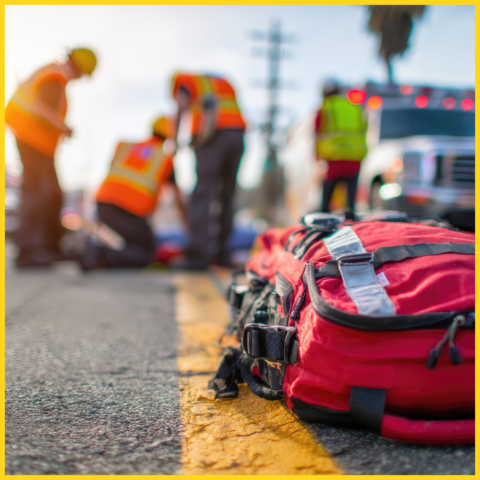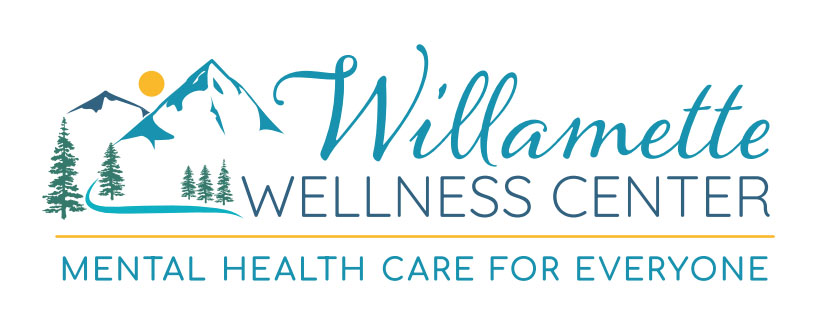Blog Post By Arin Wallington
Trauma-Informed Counseling and First Responders: Breaking the Silence

What Makes Trauma a Silent Epidemic for First Responders?
Firefighters. EMTs. Police officers. The first voices we hear when we dial 911. They shoulder our emergencies, shift after shift.
But here’s what people need to know. Trauma piles up—call after call—while stigma locks the door to care.
I felt compelled to write this after attending a North Clackamas Chamber event and meeting members of North Clackamas Fire District 1. This post reflects everyday experiences across the field, not a specific conversation.
And the truth is bigger than right here in Oregon. Nationally, trauma among first responders has become a public health issue — and silence comes at a deadly cost. First responders are more likely to die by suicide than in the line of duty.
Why First Responders Don’t Seek Mental Health Help
Too often, first responders feel they can’t speak openly about the trauma they carry from their work.
First responders are among the hardest groups to reach because the same culture that keeps them sharp under pressure can also keep them silent afterward.
Asking for help can feel like risking your badge, your crew, and your identity.
Additionally, jobs like the military, police, and fire service come with unique challenges. These professions are often tight-knit, structured by strict hierarchies, and involve experiences that are sometimes considered confidential. That makes it hard to open up to someone outside the system.
The stigma of being labeled unable to handle it, fear of losing their jobs, concerns that peers will see them as the “weak link,” and limited access to mental health care create barriers to seeking help—exactly when it’s needed most.
And when someone does find the courage to step into therapy, it’s not always easy.
Even when a first responder or veteran chooses therapy, it can be frustrating to explain the realities of their work to a civilian therapist who doesn’t share the same frame of reference.
For example, first responders use dark humor and sarcasm as survival tools. Inside these professions, joking about the unthinkable becomes a way to release pressure after witnessing horrors most people will never see.
To outsiders, that humor might look grotesque or even offensive. But for a military veteran who has watched a friend get blown apart, or a firefighter who has pulled bodies from a blaze, the compass for what counts as “too much” is simply gone.
That kind of humor isn’t cruelty—it’s a coping mechanism, a pressure-release valve.
Without it, the weight can crush them.
What Are the Effects of Trauma on First Responders Compared to Civilians?
For the average civilian, trauma is something encountered only a handful of times. About 70–80% of people experience at least one traumatic event in their lifetime, averaging 3.2 total. PTSD prevalence is about 6–7%.
For veterans, the numbers climb dramatically. PTSD prevalence is about 29% among Iraq/Afghanistan vets, 21% in Gulf War vets, and 10–31% in Vietnam veterans.
Now compare that to first responders. Police, firefighters, and EMS face 3.5 traumatic events every 6 months—over 200 in a 30-year career. Unsurprisingly, their PTSD prevalence is far higher: 14.6% for EMS, 7.3% for firefighters, and 4.7% for police, with some studies showing rates as high as 57% among firefighters.
The result: an unrelenting load that doesn’t just stay at work. First responders carry it home in the form of nightmares, hypervigilance, irritability, emotional numbing, substance use, strained relationships, and tragically, higher suicide risk.
What Therapies Help First Responders Heal from PTSD?
Across the U.S., therapists are turning to advanced, evidence-based approaches to treat PTSD in first responders, including:
- EMDR (Eye Movement Desensitization and Reprocessing): Uses guided eye movements to help the brain reprocess traumatic memories.
- CBT (Cognitive Behavioral Therapy): Teaches skills to identify and challenge unhelpful thoughts that fuel trauma symptoms.
- DBT (Dialectical Behavior Therapy): Focuses on emotional regulation, distress tolerance, and mindfulness to reduce trauma’s impact.
- IFS (Internal Family Systems): An evidence-based model of psychotherapy that views the mind as comprising distinct parts, each with its own roles and perspectives.
We offer these therapies online to Washington and Oregon first responders, as well as in-person in Milwaukie, OR.
Other options — from psychedelics to virtual reality exposure, yoga for PTSD, and TMS — are emerging. But the key isn’t just the menu of therapies. It’s access to something that works and a provider who understands the unique culture of first responder life.
Why Is Mental Health Care Essential for First Responders?
These therapies, alongside peer support and community understanding, provide first responders with fundamental tools to lighten their load.
Because trauma doesn’t just fade—it piles up like rocks in a backpack until it’s too heavy to carry alone.
But here’s the bigger truth: if trauma among first responders continues to be stigmatized, we risk more than personal suffering. We risk the strength of our departments, the safety of our communities, and the future of professions already facing recruitment and retention crises.
And this is where I stand: I believe trauma care for first responders is as essential as protective gear. If we fail to give them access to real, stigma-free support, we’re failing the very people who show up for us on our worst days.
And while systemic change is critical, each of us has a role to play. That means normalizing conversations about trauma, supporting funding for mental health services, and reminding the first responders in our lives that seeking help is not a weakness.
It’s survival.
At Willamette Wellness Center, our belief is mental health for everyone – and no first responder in Oregon or Washington should need to carry that backpack by themselves.
That’s why I’m speaking up— because change starts with communities that refuse to stay silent.

